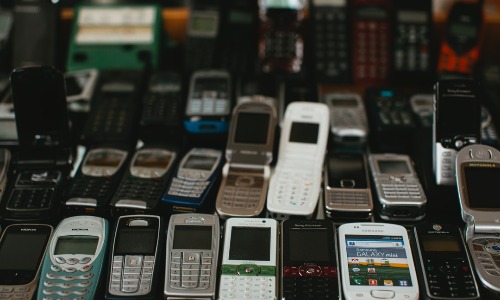Fixed Wireless Terminals (FWD) offer many benefits to businesses that need access to wireless networks. With the right Terminal, consumers can ease several electronic devices at once – a laptop, a desktop computer and a telephone all in one device with a fixed wireless router connection. Also, with Fixed Wireless Terminals businesses can take advantage of significant cost savings with the least possible outlay using LCR, turning fixed-line calls to mobile-to-motorized calls.

But what are the facts about fixed wireless terminals? How do they work? What are their pros and cons? And most importantly, are they right for your business? Here’s a review of several different types of FWD systems:
GSM Fixed Wireless Terminals (aka CDMA) – GSM fixed wireless terminals are largely similar to the CDMA/CDMA networks, offering voice mail, web browsing and data service capabilities. They are also capable of using cell phones, pagers, modems and other hands-free technologies. GSM stands for Global System for Mobile Communication. Some GSM Fixed Wireless Terminals are equipped with a SIM card reader, allowing users to choose an international SIM card and insert it into their device. Some GSM Fixed Wireless Terminals is GSM-only, which means they can only connect with networks on which they have installed sim cards.
CDMA/DCMA Fixed Wireless Terminals (aka CDMA) – These types of Fixed Wireless Terminals are identical to GSM Fixed Wireless Terminals, offering the same voice mail, data service and web browsing capabilities. However, CDMA/DCMA devices must be pre-programmed to accept other types of communication signals, such as Global Positioning System coordinates or U.S. Standard geographic coordinates. Because CDMA/DCMA terminals are designed to handle voice data, they often don’t have their own modems and connection capabilities. CDMA-only units must always be connected to another CDMA-ready unit or another fixed wireless terminal.
USB Modem Fixed Wireless Terminals (aka USB) – These types of Fixed Wireless Terminals are similar to GSM Fixed Wireless Terminals, offering the same voice mail, data service and web browsing capabilities. However, they are capable of only transferring data at a rate of 12 megabits per second (bits/sec). Many companies, particularly small businesses, need a high data transfer rate to meet their productivity goals. A USB modem fixed to a home or office network can meet these needs at a cost effective price.
PCMCIA Mobile Phone Terminal – Also known as a PCMCIA card, a PCMCIA is a type of non-volatile memory card. A PCMCIA card has its own architecture and is attached to a computer via a USB port. As with other types of wireless terminals, PCMCIA cards are designed to communicate with the host computer either through a wired Ethernet connection or through a mobile network. A PCMCIA card can support data transfer rates of up to 10 gigabits per second. A major benefit of a PCMCIA card is that it requires very low maintenance, making it highly economical in terms of energy consumption.
-
 Cisco VG224 24 Port Voice Over IP Analog$139.00
Cisco VG224 24 Port Voice Over IP Analog$139.00 -
 Uniden UM385 25 Watt Fastened Mount Marine Vhf Radio, Waterproof IPX4 with Triple Watch, Dsc, Emergency/Noaa Climate Alert, All Usa/Worldwide/Canadian Marine Channels, Reminiscence Channel Scan, WhiteProduct on sale$109.89
Uniden UM385 25 Watt Fastened Mount Marine Vhf Radio, Waterproof IPX4 with Triple Watch, Dsc, Emergency/Noaa Climate Alert, All Usa/Worldwide/Canadian Marine Channels, Reminiscence Channel Scan, WhiteProduct on sale$109.89 -
 Conventional Handmade Brass Dummy Gramophone Resin Vintage Classic Desk Clock Present for Dwelling Décor, 7.11″ Tall(Phonograph)$33.89
Conventional Handmade Brass Dummy Gramophone Resin Vintage Classic Desk Clock Present for Dwelling Décor, 7.11″ Tall(Phonograph)$33.89 -
 YOLISTIC 360° Telephone Twine Detangler Landline Phone Prolonged Rotating$4.99
YOLISTIC 360° Telephone Twine Detangler Landline Phone Prolonged Rotating$4.99 -
 Konftel 300wx Wi-fi Convention Telephone, BlackProduct on sale$546.78
Konftel 300wx Wi-fi Convention Telephone, BlackProduct on sale$546.78 -
 Studio 2 Charging Port Substitute for Beats studio2 Headphones, Beats Headphones Charging Port, Beats Studio 2 Headphones Micro USB Port, Studio 2.0 USB Charging Board Restore Equipment$10.99
Studio 2 Charging Port Substitute for Beats studio2 Headphones, Beats Headphones Charging Port, Beats Studio 2 Headphones Micro USB Port, Studio 2.0 USB Charging Board Restore Equipment$10.99 -
 PBD WA-2608 Digital Amplified Outside HD TV Antenna with Mounting Pole & 40 ft RG6 Coax Cable 150 Miles Vary Wi-fi Distant Rotation Help 2TVsProduct on sale$49.98
PBD WA-2608 Digital Amplified Outside HD TV Antenna with Mounting Pole & 40 ft RG6 Coax Cable 150 Miles Vary Wi-fi Distant Rotation Help 2TVsProduct on sale$49.98 -
 Yetaida 12V 2A DC Energy Provide, 12 Volts AC Adapter for LED Strip,CCTV Digital camera,Wi-fi Router,Monitor$11.99
Yetaida 12V 2A DC Energy Provide, 12 Volts AC Adapter for LED Strip,CCTV Digital camera,Wi-fi Router,Monitor$11.99 -
 F Sort to SMA Male Feminine Coax Connector Coaxial Adapter 2 Units 6 Pcs$6.80
F Sort to SMA Male Feminine Coax Connector Coaxial Adapter 2 Units 6 Pcs$6.80







